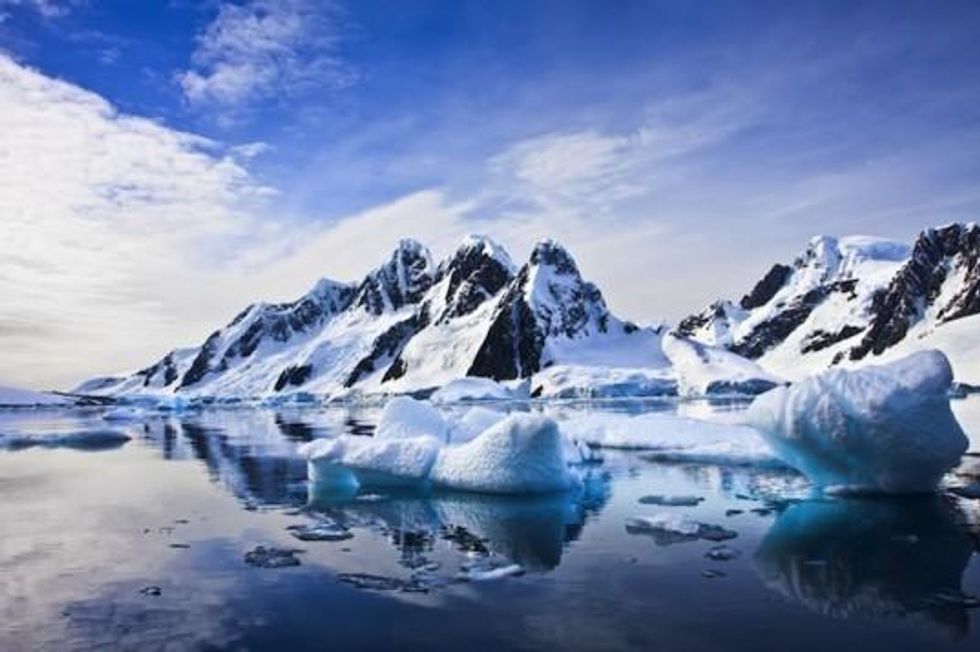The International Panel on Climate Change's Fifth Assessment Report on global warming - dubbed AR5 - is due out in 2014, but information is leaking out already, and once again, it is likely to be outdated on the day it's released.
Worse, it will substantially understate both the rate and pace of warming, and it's consequences. Here's why.
Outdated on day of release: The IPCC process virtually assures that all the research used in the report will be several years old. Since it only uses peer reviewed work and a consensus process, it has a long lead-time and a least common denominator data set. The latest research and any research that challenges established theory is left on the cutting room floor.
For example, in the AR 4 - released in 2007 -- the IPCC forecast sea level rise to be, at most, 59 centimeters. Conventional wisdom up to that time suggested that continental ice sheets took thousands of years to melt. But well before that report was issued, research had revealed that dynamic forces were causing these ice sheets to melt much faster. As a result, even as the AR4 was being released, some researchers were forecasting sea level increases of as much as 3 meters - nearly 5 times the worst-case AR4 estimate.
These excessively conservative forecasts are baked into the IPCC process. In fact, some suggest that's the point of the IPCC - to take control of the scientific debate out of the hands of scientists and turn it over to governments.
Ignoring known feedbacks: But that's only part of the reason the IPCC reports have been out-of-date-on-date-of-issue: for the most part, they still ignore the effects of positive feedbacks on warming.
For example, the AR 5 will not consider the potential warming from methane released from melting permafrost and volatizing clathrates. Yet we know this could add more than 2F to projected warming by 2100.
Indeed, when we look at the geologic record, we see sea level increases, extinctions and climate shifts that are at or beyond our most extreme predictions from models. The amount of carbon causing these geologic events was comparable to what we're releasing now, but we're releasing it far faster than occurred in even the worst of these ancient warmings.
In short, empirical evidence suggests today's worst-case scenarios are tomorrow's most-likely outcomes. The same is true when we do ex-ante analysis of modeling done in the early stages of climate research. Today's reality goes well beyond even the most dire past predictions.
Feedbacks probably explain why.
There are at least 12 significant feedbacks that will have a substantial effect on the rate and pace of warming. Yet feedbacks are often too complex to fully characterize, let alone model. Yet their effects are serious. For example just 3 of these feedbacks could add as much as 4.5 degrees to the warming forecasts for 2100.
The first is a result of decreases in sulfur aerosols from phytoplankton, as the seas become more acidic and these critters begin to die off. Sulfur aerosols are known to moderate solar gain and mitigate global warming. This could increase warming by close to 1F by 2100.
Extreme weather events could add another 1.5 F since they effect the Earth's ability to sequester human emissions and in some cases increase those emissions directly.
Add these to the 2 F expected from methane releases - a conservative number if one compares the results of similar events in the geologic record - and these 3 feedbacks alone could add 4.5 F to our worst-case projections for 2100.
And of course, warming doesn't simply stop in 2100, merely because we stop modeling beyond that. It continues and accelerates, and, unchecked, becomes self-reinforcing and irreversible. We're already locked into thousands of years of sea level rise from the carbon we've put into the system to date.
Using Nuance to misinform: To the untrained or uncritical eye - which is to say most of the press which has been gutting cutting back on environmental coverage -- the IPCC's AR5 report could also be seen to reinforce the idea that global warming is "slowing down" or "stopped."
The AR5 notes an "observed reduction in surface warming." The key word here is surface warming. The reality is, at the moment, because of oscillations in the Pacific, more heat is being absorbed by deeper ocean layers. The oceans account for about 93% of all warming, so a slow down in the rate of surface warming is relatively insignificant. On net, the Earth is still warming and, if anything, the rate of warming has accelerated.
But deniers will be seizing on that phrase and trumpeting it all over their anti-science networks. And credulous reporters will repeat it endlessly to be "balanced" and to "cover the controversy."
Meanwhile, in the real world, the Earth will continue to hurtle toward a rendezvous with pre-historic tragedies like the Paleocene-Eocene Thermal Maximum.
Bottom line: The future we're fashioning is completely incompatible with the civilization we've built, and the IPCC slow-walks , understates and outright ignores much of the science that screams at us to do something about it.
 The International Panel on Climate Change's Fifth Assessment Report on global warming - dubbed AR5 - is due out in 2014, but information is leaking out already, and once again, it is likely to be outdated on the day it's released.
The International Panel on Climate Change's Fifth Assessment Report on global warming - dubbed AR5 - is due out in 2014, but information is leaking out already, and once again, it is likely to be outdated on the day it's released.